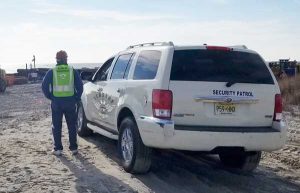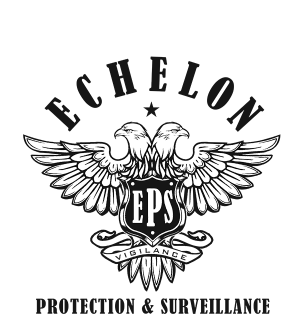By: Stuart J. Visnov, CEO, Echelon Protection & Surveillance
Word count: 641
 One of the most important components of a well-run security company is the supervision of the officers on duty. Whether you’re in the public or private sector, it’s the supervisors that provide the hands-on quality control that keep your site running smoothly. If your security partner hasn’t invested in regional supervisors, you can be sure that your guard performance will suffer. The best security firms maintain a layered approach to guard performance that incorporates professional training, officer reporting software, GPS tracking and consistent supervision. Below are the key responsibilities of a supervisor.
One of the most important components of a well-run security company is the supervision of the officers on duty. Whether you’re in the public or private sector, it’s the supervisors that provide the hands-on quality control that keep your site running smoothly. If your security partner hasn’t invested in regional supervisors, you can be sure that your guard performance will suffer. The best security firms maintain a layered approach to guard performance that incorporates professional training, officer reporting software, GPS tracking and consistent supervision. Below are the key responsibilities of a supervisor.
Planning – A supervisor will often do the strategic planning for the security at your location. This may include: choosing the right guards, deciding where they’ll be posted, developing a site map, writing protocols, coordinating with local law enforcement and communicating with the client to be sure everyone’s on the same page.
Preparation – In the chain of command, supervisors report to the Director of Operations. As part of the team, supervisors are responsible for making sure the guards have everything they require to succeed in their duties according to protocols and expectations. They study the site footprint, develop site maps, determine areas of vulnerability, post scan tags for patrols, and secure equipment such as radios, deterrent signage and lock boxes needed for the job.
On-Site Training – As the person most familiar with the site, a supervisor’s responsibilities frequently include the on-site training of new guards. It is standard operating procedure for the supervisor to meet the guard(s) on or before the first day of the job to review security protocols, answer questions, communicate client expectations and even coordinate with local law enforcement. Supervisors spend as much time on location as needed to make sure the guards are on point and the client is satisfied.
Administration – Once a new client is up and running, the supervisor begins focusing on the quality control aspects of the job, such as time clock check-in and check-out, verifying guard location via GPS, client communication, scheduling changes, reviewing daily officer reports and overseeing shift changes. All information is documented and reported to the Director of Operations and Human Resources so they can evaluate the guard’s overall security performance.
Field Inspections – Remote locations, long hours or overnight shifts are a recipe for security guards to become bored or fatigued…no matter how good their intentions are. However, if a guard knows that their boss tends to show up randomly, they’re more likely to stay on their toes. These surprise inspections are important to either correct bad habits or simply bring the guard doughnuts and coffee to let them know they’re a valued team member.
Customer Service – When a client hires a security firm, there’s an implied guarantee that they will provide solutions with a certain level of urgency. In general, if the guard can’t solve the problem through their training or directives, they’ll report it to the supervisor who has access to the full assets of the security company at his disposal.
Discipline – In many respects, supervisors are the eyes and ears of the company. They work with the guards to improve their performance and relay guard input back to operations. In this way, the company has the front line information it needs to help them make more informed decisions. Guards who consistently demonstrate reliability and professionalism receive commendations and pay increases, while those who do not meet expectations receive documented corrective guidance. Since the security company and the guard have a mutual investment in each other, it benefits everyone to work together to keep the clients people and property safe in any situation.
As you can see, a great supervisor is not only the eyes and ears of the operations team, but the day to day grease and glue that provides the quality control that clients expect of professional security firm.


